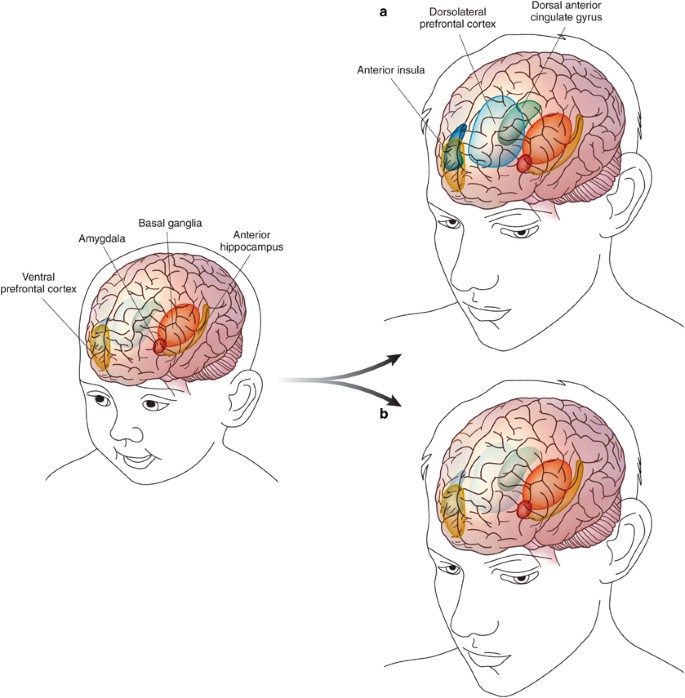Behavioral Inhibition: Definition, Causes, Effects, and Strategies for Management
What is Behavioral Inhibition?
Imagine being in a situation where you desperately want to speak up, but something inside holds you back. Or, picture a child who’s eager to explore a new playground, but clings to their parent’s hand due to an inexplicable sense of uncertainty. These scenarios may seem innocuous, but they represent a critical concept in psychology – Behavioral Inhibition.
Behavioral Inhibition (BI) refers to the predisposition to exhibit increased caution, hesitation, and restraint in novel or unfamiliar environments. It’s a personality trait characterized by an automatic, instinctive tendency to withdraw or suppress actions in response to perceived uncertainty or potential threat. This inclination can manifest in various forms, such as fearfulness, anxiety, or shyness. To understand BI better, let’s consider the case of Emma, a bright and curious three-year-old who’s entering preschool for the first time...
BI is often misunderstood as mere shyness or introversion. However, while some introverted individuals may exhibit BI, not all individuals with BI are introverted. BI is a distinct construct that involves an affective (emotional) and cognitive (thinking) response to uncertainty or potential danger.
The impact of BI can be observed in various aspects of life. For instance:
- Social Interactions: Individuals with high BI may avoid social interactions or experience anxiety in group settings due to concerns about being judged or rejected.
- Learning and Exploration: BI can hinder learning and exploration, as individuals may be hesitant to engage in novel activities or explore new environments.
- Emotional Regulation: People with BI may exhibit increased anxiety or fear responses in situations that others might find challenging but manageable.
Research suggests that BI can have both positive and negative consequences. On the one hand, a moderate level of BI can serve as a protective mechanism, preventing individuals from engaging in reckless or impulsive behaviors. On the other hand, excessive BI can hinder social development, constrain learning opportunities, and contribute to anxiety disorders.
In conclusion, Behavioral Inhibition is a vital concept in understanding human behavior, particularly in the context of uncertainty and novelty. By recognizing the characteristics and implications of BI, we can better appreciate the complexities of human nature and work towards developing strategies to support individuals with high BI, enabling them to navigate the world with greater confidence and assurance.

Characteristics and Causes of Behavioral Inhibition
Behavioral inhibition (BI) is a complex phenomenon characterized by the tendency to exhibit caution, restraint, and introversion in the face of novel or unfamiliar situations. It encompasses various cognitive, emotional, and behavioral components, making it challenging to define and understand...
The Complex Relationship Between Behavioral Inhibition, Social Reticence, Anxiety, and Mental Health Concerns
While BI can be an adaptive trait, helping individuals to approach challenging situations with care and vigilance, it can also contribute to the development of social reticence, anxiety, and other mental health concerns...
Related Concepts and Temperaments
Behavioral inhibition is a complex and multifaceted phenomenon that is closely tied to various temperaments and personality traits...
Unpacking the Intricacies of Behavioral Inhibition: A Comparative Analysis
Behavioral inhibition is a complex construct that has garnered significant attention in the realms of psychology, neuroscience, and education...
Examples and Case Studies: Behavioral Inhibition in Practice
Behavioral inhibition can be observed in various aspects of life. To better understand its implications, let’s delve into some real-life examples and case studies that illustrate behavioral inhibition in practice...
Strategies for Managing and Supporting Individuals with Behavioral Inhibition
Managing and supporting individuals with BI requires a thoughtful and multi-faceted approach that acknowledges their unique needs and challenges...
Assessment and Measurement of Behavioral Inhibition
Assessing and measuring Behavioral Inhibition (BI) is a complex task that requires a multifaceted approach...
Research and Clinical Developments
Research on Behavioral Inhibition (BI) has experienced significant growth in recent years, with scientists and clinicians striving to understand the complexities of this trait and its far-reaching implications...
Individual Differences in Behavioral Inhibition
While we’ve explored the concept of Behavioral Inhibition (BI) as a temperament trait, it’s essential to recognize that individuals exhibit varying degrees of BI...
Important Sources
| Behavioral Inhibition: Understanding and Managing This Trait | Explore behavioral inhibition, its characteristics, causes, and impact. Learn strategies to manage this temperamental trait and support affected individuals. |
| Behavioral Inhibition and Developmental Risk: A Dual-Processing ... | Behavioral inhibition (BI) is an early-appearing temperament characterized by strong reactions to novelty. |
| BEHAVIORAL INHIBITION - Psychology Dictionary | A pattern of behavior characterized by shyness, timidity, withdrawal, and fear of the unfamiliar. |
| Behavioral inhibition and anxiety: The moderating roles of … | Behavioral inhibition (BI) is associated with social reticence and increased anxiety problems later in life. |
| Gray's biopsychological theory of personality - Wikipedia | The behavioral inhibition system (BIS) predicts an individual's response to anxiety-relevant cues in a given environment. |
| Behavioral Inhibition: Integrating Theory, Research, and Clinical ... | A comprehensive examination of behavioral inhibition, its biological, psychological, and social markers. |
| Behavioral Inhibition - an overview | ScienceDirect Topics | Behavioral inhibition requires the ability to judge when a response is appropriate to a specific context. |
| Behavioral inhibition and dual mechanisms of anxiety risk ... | Behavioral inhibition (BI) predicts anxiety problems later in life. |
| Inhibition and individual differences in behavior and emotional ... | A distinctive pattern of behavior in inhibition development. |
| Behavioral Inhibition - SpringerLink | Behavioral inhibition is assessed by performance on cognitive and behavioral tasks. |